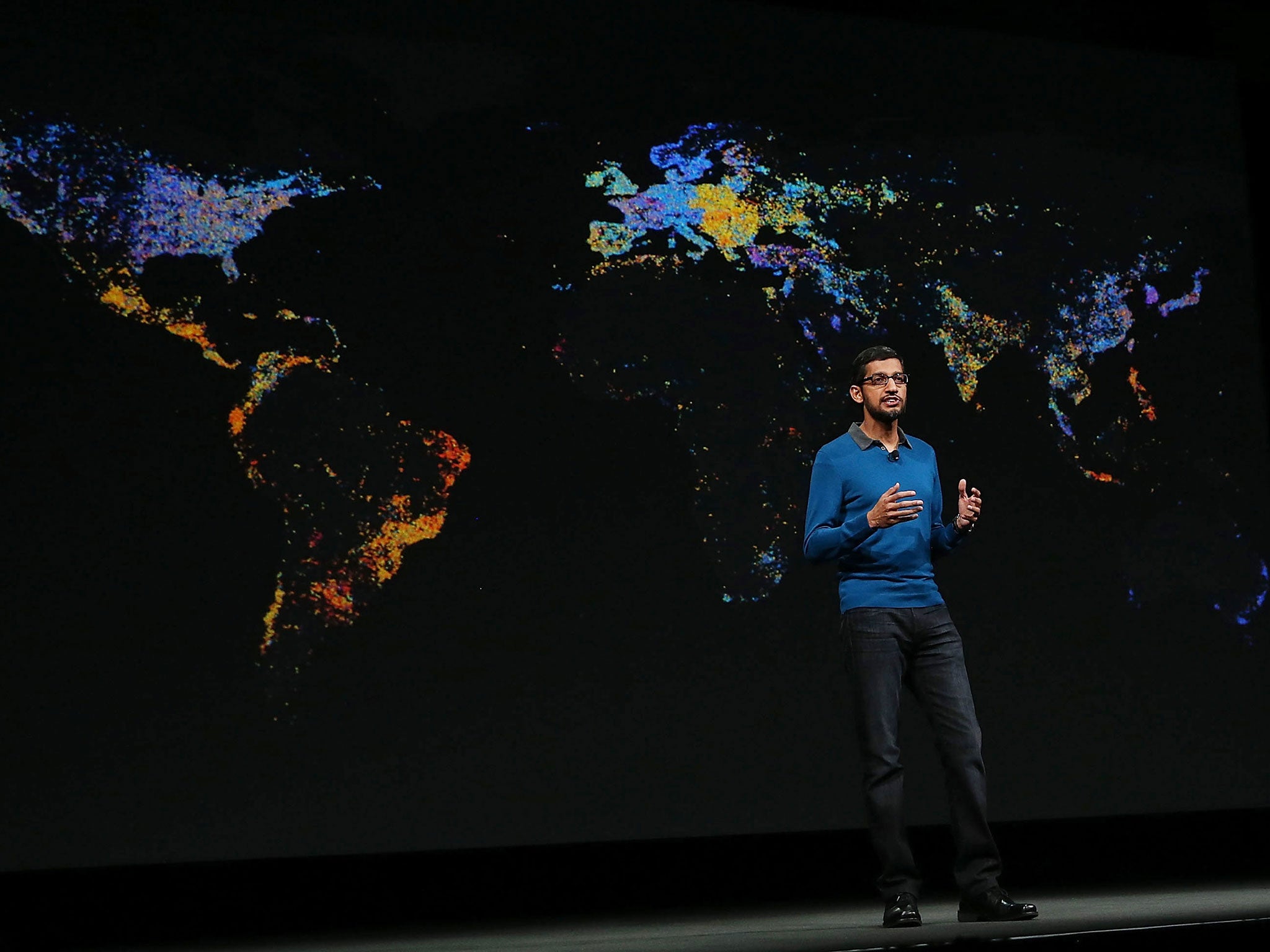Sundar Pichai: new Google boss went from house with little technology to join increasing number of Indian tech CEOs
Pichai joined Google in 2004 — and slowly, quietly rose to be one of its most powerful forces

Your support helps us to tell the story
From reproductive rights to climate change to Big Tech, The Independent is on the ground when the story is developing. Whether it's investigating the financials of Elon Musk's pro-Trump PAC or producing our latest documentary, 'The A Word', which shines a light on the American women fighting for reproductive rights, we know how important it is to parse out the facts from the messaging.
At such a critical moment in US history, we need reporters on the ground. Your donation allows us to keep sending journalists to speak to both sides of the story.
The Independent is trusted by Americans across the entire political spectrum. And unlike many other quality news outlets, we choose not to lock Americans out of our reporting and analysis with paywalls. We believe quality journalism should be available to everyone, paid for by those who can afford it.
Your support makes all the difference.Sundar Pichai is the new head of Google — the latest part of a journey that has taken him from a two room house in India that had barely any technology at all to the head of one of the world’s biggest internet companies.
Pichai was born in Chennai, in India. His family of four, which included his parents and younger brother, lived in a two room apartment and the brothers slept on the living room floor.
The young Pichai was successful from the beginning, winning praise from his teachers and success in endeavours including cricket.
But he didn’t initially have the means to fulfil his technical ambitions. He saw the results of technology in part because of his father’s job at General Electric Company — but they didn’t have a television or a car.
But Pichai went to study metallurgical engineering at IIT Kharagpur. From there, his success took him to a scholarship at Stanford — Silicon Valley’s closest university — and from there to Google, in 2004.
Pichai is far from the first Indian-born head of a technology company. But it means that two of the world’s five biggest companies are run by people with Indian origins — Satya Nadella, the head of Microsoft, was born in Hyderabad — and a range of other companies have bosses from the country, including Mastercard and Adobe.
As the BBC notes, Indian papers have hailed Pichai’s ascent. The new is “ a bonus for people of Indian-origin the world over,” wrote The Hindu, and the Times of India said that his appointment was a “a milestone for Indian-origin CEOs”.
Pichai even won congratulations from India's prime minister, Narendra Modi.
Studies have praised the Indian style of management, arguing that India has a tendency to turn out the top-level leaders that it does because of its particular management culture, which emphasises humility and professional will at the same time.
Pichai’s rise to the top began just over 10 years ago. He got his start by helping kick off Chrome, the now hugely successful web browser, and gradually accrued more responsibilities — including Chromebooks and Google’s online services, like Gmail and Google Docs.
Soon he took control of Android — one of the biggest and toughest products at Google — and then much of the most important parts of the company.
Now, Pichai looks after all of the company’s most important products. But according to his colleagues, Pichai is still relaxed and tidy in his work.
“Executives in Pichai's position tend to lead their teams with vision, charisma, bombast, or (usually) some combination of all three,” the Verge wrote in a profile in May, just before the most recent Google I/O developer conference. “But there's no bombast to Pichai. His office is clean to the point of being spartan, and that simplicity is reflected in his demeanor.
“Pichai is thoughtful and friendly in person, nodding carefully as he listens and then responding with real empathy.”
Join our commenting forum
Join thought-provoking conversations, follow other Independent readers and see their replies
Comments